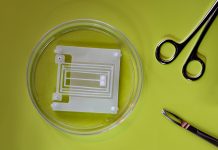The United Kingdom is doubling its commitment to semiconductor technology with an investment of £26.8 million in an effort to fund innovation hubs
What is the aim?
The goal is to thrust the UK semiconductor industry forward, boost innovation, and equip the workforce with essential skills for the future. Semiconductors, often called microchips, are the backbone of almost every electronic device, from smartphones to medical equipment.
Recognising their pivotal role in advancing technologies like artificial intelligence (AI) and quantum computing and achieving net zero goals, the UK government has earmarked semiconductors as one of the top five proprietary technologies.
The investment and what it means
The investment led by the Engineering and Physical Sciences Research Council (EPSRC) and Innovate UK, both integral parts of UK Research and Innovation (UKRI), will see the establishment of two new innovation and Knowledge Centers (IKCs) at the University of Bristol and the University of Southhampton.
These IKCs will serve as innovation hubs, driving research and commercialisation efforts in semiconductor technologies. Led by expert entrepreneurial teams, the centres will focus on areas such as high-voltage electronic devices crucial for power generation, as well as silicon photonics technologies essential for communications systems and emerging applications.
But it’s not just about fostering technological advancements. The investment also addresses the critical need for a skilled semiconductor workforce. Innovate UK has allocated £4.8 million for 11 semiconductor skills projects across 32 organisations, aimed at filling talent gaps and nurturing talent from school level upwards.
Implementing the National Semiconductor Strategy
Minister for Tech and the Digital Economy Saqib Bhatti emphasised the significance of this investment in propelling the UK semiconductor industry forward. He highlighted the rapid progress made within just nine months of implementing the National Semiconductor Strategy, positioning the UK as a global hub for innovation with far-reaching impacts.
Professor Charlotte Deane, Executive Chair of EPSRC, emphasised the importance of investing in research and innovation to build a thriving semiconductor industry. She highlights how long-term funding has paved the way for developing new technologies, with the IKCs poised to drive future applications in telecommunication, quantum computing, AI, and electrolocation.
Professor Will Drury, Executive Director of Digital and Technologies of Innovate UK, also highlighted semiconductor technology’s vital role in shaping the future of the UK economy. He stressed Innovate UK’s commitment to strategic investments that foster innovation, support business growth, and tackle global challenges.
Strengthening the UK’s semiconductor industry
The University of Bristol IKC will focus on advancing high-voltage electronic devices using wider or ultra-wide bandgap compound semiconductors. The initiative aligns with the UK’s ambitions for net zero by enhancing the efficiency of power electronic systems and the security of the semiconductor supply chain.
Meanwhile, the University of Southampton’s IKC will concentrate on silicon photonics technologies, which are crucial for communication systems and emerging applications. By bridging industry and research expertise, this centre aims to translate cutting-edge research into tangible commercial opportunities, fostering the growth of new companies and job creation.
This investment strengthens the UK semiconductor industry and national security and resilience, aligning with UKRI’s strategic theme of building a secure and resilient world.














